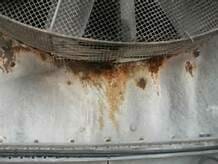- Course No E – 1404
- PDH Units 3.00
No data found for Custom Course Number
No data found for Custom Course Units
- Course No E – 1404
- PDH Units 3.00
Intended Audience: civil, environmental and sanitary engineers
PDH UNITS: 3
This course discusses microbiological and corrosion control in cooling water systems. Microbiological organisms are composed of three classes: algae, bacteria, and fungus. Large biological organisms such as clams, snails, mussels, or similar species are referred to as macrobiological organisms. The presence of any biological growth can be detrimental to cooling tower operations. Problems include fouling, corrosion, and loss of efficiency. These problems can lead to downtime, higher operating cost, and even premature replacement of equipment. Additionally, some bacteria are pathogenic and can pose a risk to human life. Course Outline 1. MICROBIOLOGICAL DEPOSITS AND CONTROL 2. CORROSION IN COOLING SYSTEMS This course will give you technical guidance you can apply when addressing microbiological and corrosion control issues in cooling water systems.
Learning Objectives
At the successful conclusion of this course, you’ll be able to identify and discuss:- Learn about microbiological deposits and control;
- Learn about planktonic bacteria;
- Learn how to control sessile bacteria;
- Learn about microbiological control methods;
- Learn how oxidizing biocides destroy nutrients that the microorganisms require for growth.;
- Learn how chlorine compounds are the most effective industrial oxidizing biocides and the most widely used.; and
- Learn how bromine compounds are very similar to chlorine compounds.
Once completed, your order and certificate of completion will be available in your profile when you’re logged in to the site.










